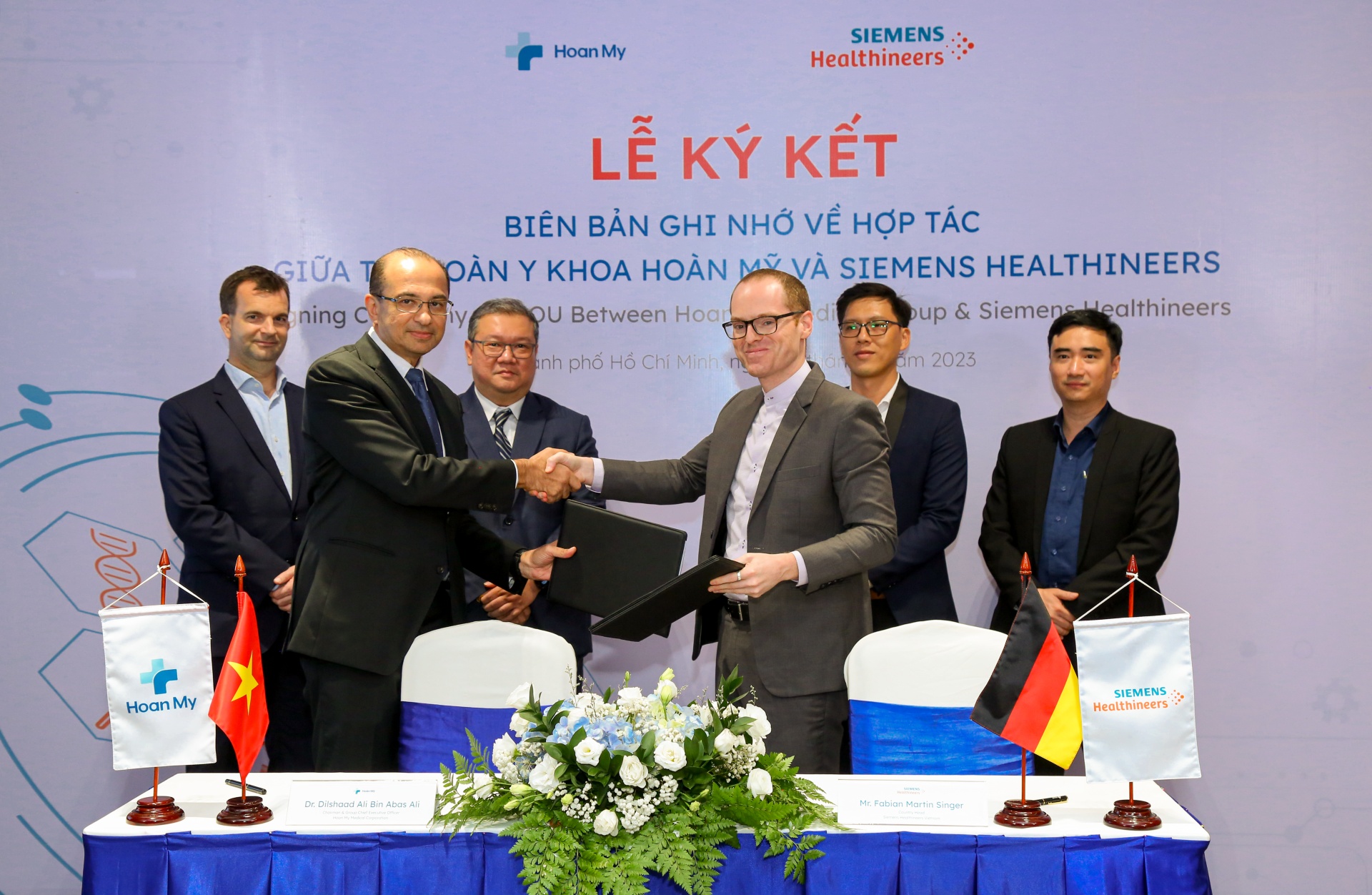Fresh mindsets called for in post-pandemic healthcare
About 200 participants including government leaders, international organisations, business associations, and experts will gather at VIR’s conference themed “Realising Resolution 29: New Approaches for Pharma-Healthcare Development” this week to discuss the current development situation in pharma and healthcare.
 |
| Fresh mindsets called for in post-pandemic healthcare |
The key issue will be the importance of the resolution on continuing to promote industrialisation and modernisation of the country by 2030.
Resolution No.29-NQ/TW is the guideline for the development of sectors and industries, and includes 10 groups of key solutions and 59 key tasks to be implemented before 2030. The government acknowledges that it requires radical changes in mindset and actions to achieve its vision.
According to the Pharma Group, a sector committee of the European Chamber of Commerce in Vietnam, drawing from international experiences and building development strategies and incentives will require inter-ministerial collaboration and the participation of various stakeholders, including the private sector. The primary role of the government is to direct and oversee implementation progress, which is crucial to ensuring the goals are achieved.
Pharma Group chairman Emin Turan told VIR, “Realising the goals means generating breakthroughs in pharma sector development, which require the adoption of innovative approaches and clearly defined policy priorities to achieve long-term goals. This will not only foster the sector’s growth and innovation, but also create spillover effects and driving forces for other industries.”
Pharma Group Vietnam represents the voice of the innovative pharmaceutical industry. It has more than 20 member companies who are multinationals such as Sanofi, AstraZeneca, Bayer Vietnam, GlaxoSmithKline, Merck, Novartis, Hoffman-La, Roche, and Pfizer.
Grand approaches wanted
A recent shortage of drugs and medical equipment for treatment, which caused widespread negative impacts, is a typical example of how important a new approach is for the future sustainable development of the sector, experts said.
Vietnam’s health system is facing many challenges as it is severely affected by rising infectious and non-communicable diseases, hospital overloads, and an ageing population, as well as an unstable supply of medicines and medical equipment.
Worse still, the pharmaceutical industry lacks advanced technology and techniques. As shown in a recent report from the Ministry of Health, for over a decade drug production has expanded in scale with 228 factories meeting GMP-WHO standards, of which 18 production lines meet EU-GMP standards.
Meanwhile, the total pharmaceutical market value in 2022 was estimated at $6.2 billion, and the percentage of drugs that fail to meet quality is less than 2 per cent.
In fact, many domestic drug factories only invest in production lines for dosage forms, focusing on common and generic drugs. They have not yet approached or applied modern technology, new apothecary techniques, or produced specialised drugs, special treatments, and original brand-name drugs. More than 90 per cent of raw materials for domestic drug production are currently imported.
The potential of medicinal materials and traditional medicine has also not been promoted or tapped into.
Dr. Trinh Van Lau, chairman of the Vietnam Pharmaceutical Companies Association, said, “There should be an institutional breakthrough to create better conditions to encourage enterprises to research, develop, receive, and transfer technologies for the production of modern dosage forms.”
Nguyen Hai Nam, rector of the Hanoi University of Pharmacy, said, “To raise the ranking of the pharmaceutical industry in Vietnam, it is necessary to take the lead in investing in research, trials, and development of biological and innovative drugs, as well as capitalising on the remarkable advancements in innovation to accelerate the creation of strong, sustainable, high-quality health systems.”
To better facilitate businesses and investors, Vietnam’s healthcare sector is reforming administrative procedures, as well as amending laws and regulations. It is working on the draft amendments to the Law on Health Insurance and expects to submit to the National Assembly for discussion in October and for approval in May 2024. Meanwhile, the amended Law on Pharmacy is in the pipeline, which is also expected to be discussed by legislators next spring.
Pinning down trends
Investment in healthcare has tended to focus on innovation and technology transfer, and recent developments by multinationals have reinforced the trend.
Viatris Inc., a global healthcare company formed in November 2020, announced in late 2022 a broadening partnership with Medochemie, an EU-GMP manufacturer, to localise innovative products in Vietnam. Under this partnership, Viatris transfers technology that licences Medochemie to manufacture Viatris’ drugs for identified non-communicable diseases in its Vietnam facilities.
Viatris’ most prominent initiative is the Lotus Project – one of the first innovative drug production technology transfer projects in Vietnam, licensed in 2019. Vietnam was the only Asian country selected by its global company for tech transfer of off-patent originators.
Eunice Cho, country manager of Viatris Vietnam, said, “In addition to seeing good growth potential for the company, we understand that our performance in Vietnam is in line with our purpose of meeting health needs and ensuring access to quality medicines.”
Elsewhere, in March, AstraZeneca Vietnam and the Ministry of Health signed an MoU to deepen their long-term partnership and strengthen collaboration to enhance healthcare for the Vietnamese people. The expanded partnership, to last until 2028, will see comprehensive cooperation between the two parties in disease prevention and control, pharmaceutical research and development, manufacturing, and sustainable health system development.
According to KPMG’s recent report “The Value of Innovation in Vietnam”, the innovative pharmaceutical industry can potentially grow at a sustained 15-20 per cent rate, with more than $26.8 billion output added by 2045. Employment in the innovative pharmaceutical industry is also likely to grow by 5-10 per cent, resulting in a 9-13 per cent growth of labour productivity and an additional 50,000-100,000 new high-skilled jobs by 2045.
 | AstraZeneca Vietnam honoured with special BritCham award AstraZeneca Vietnam has received the British Chamber of Commerce's (BritCham) first-ever 50th Anniversary Recognition award for the company's unwavering commitment to innovation, sustainability, and its profound impact on Vietnam's healthcare sector. |
 | Hoan My Medical Group and Siemens Healthineers enter partnership On June 19 in Ho Chi Minh City, Hoan My Medical Group, a leading private healthcare network in Vietnam, and Siemens Healthineers, a German medical technology giant, signed an MoU to advance healthcare services in Vietnam. |
 | Dentons LuatViet advises on groundbreaking deal in healthcare sector Prestigious law firm, Dentons LuatViet, has provided expert counsel as the Vietnamese representative for Singapore-based Thomson Medical Group in its successful acquisition of Far East Medical Vietnam Limited. This landmark deal represents one of the largest healthcare mergers in Vietnam and Southeast Asia. |
What the stars mean:
★ Poor ★ ★ Promising ★★★ Good ★★★★ Very good ★★★★★ Exceptional
Themes: Healthcare Platform
- PM outlines new tasks for healthcare sector
- Opella and Long Chau join forces to enhance digestive and bone health
- Hanoi intensifies airport monitoring amid Nipah disease risks
- Cosmetics rules set for overhaul under draft decree
- Policy obstacles being addressed in drug licensing and renewal
Related Contents
Latest News
More News
- PM outlines new tasks for healthcare sector (February 25, 2026 | 16:00)
- Ho Chi Minh City launches plan for innovation and digital transformation (February 25, 2026 | 09:00)
- Vietnam sets ambitious dairy growth targets (February 24, 2026 | 18:00)
- Masan Consumer names new deputy CEO to drive foods and beverages growth (February 23, 2026 | 20:52)
- Myriad risks ahead, but ones Vietnam can confront (February 20, 2026 | 15:02)
- Vietnam making the leap into AI and semiconductors (February 20, 2026 | 09:37)
- Funding must be activated for semiconductor success (February 20, 2026 | 09:20)
- Resilience as new benchmark for smarter infrastructure (February 19, 2026 | 20:35)
- A golden time to shine within ASEAN (February 19, 2026 | 20:22)
- Vietnam’s pivotal year for advancing sustainability (February 19, 2026 | 08:44)

 Tag:
Tag:



















 Mobile Version
Mobile Version